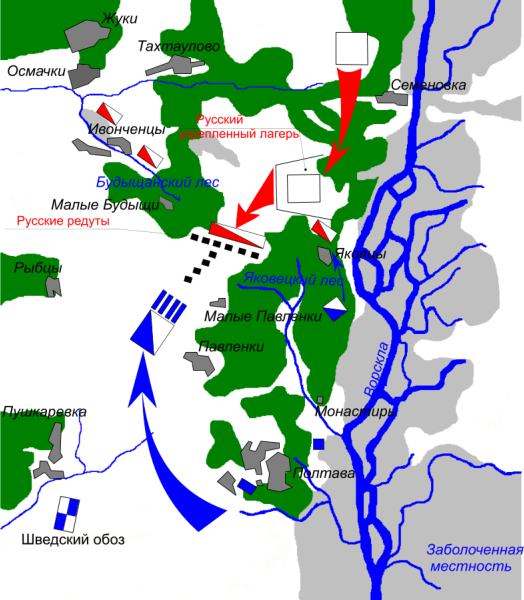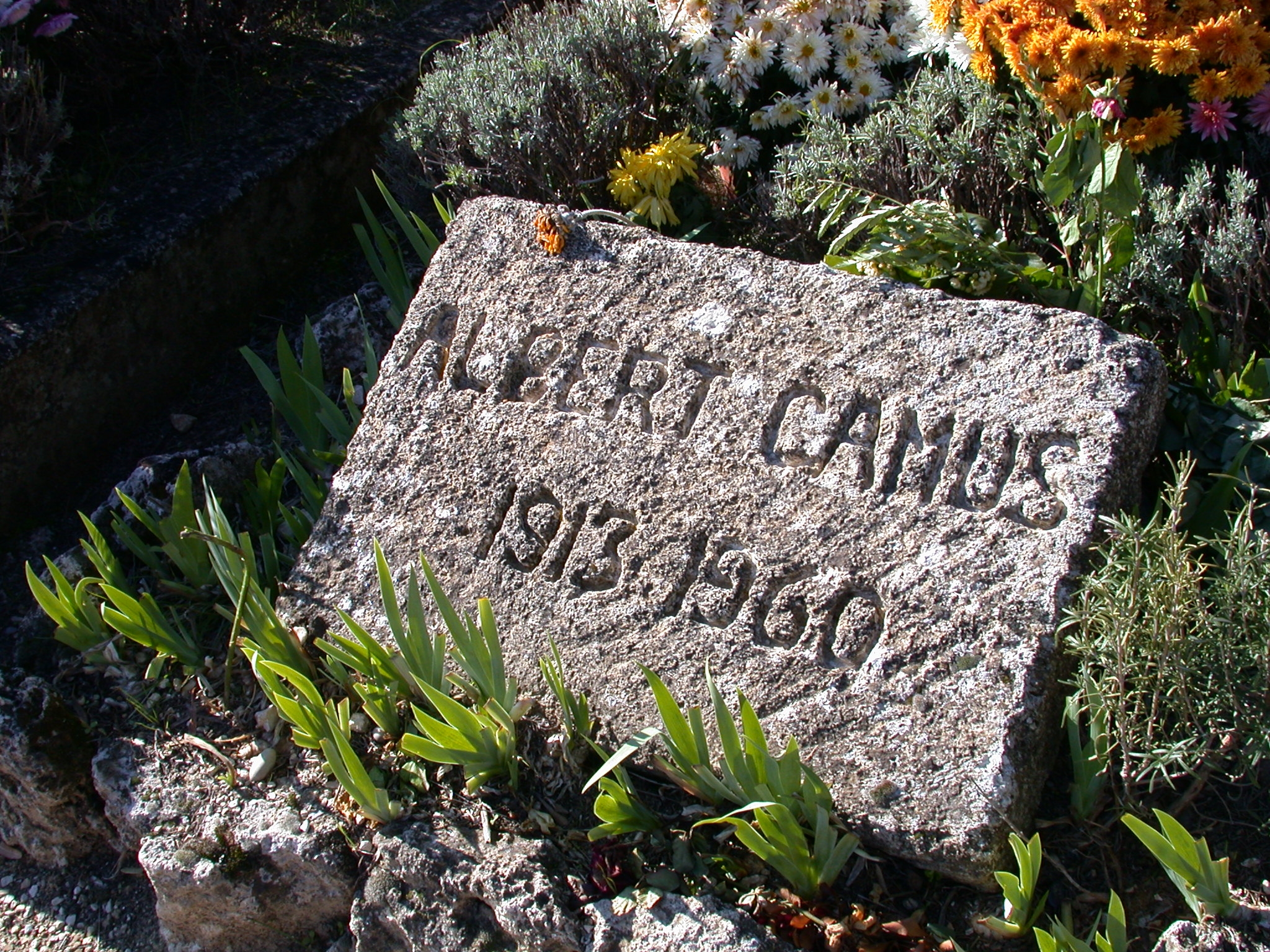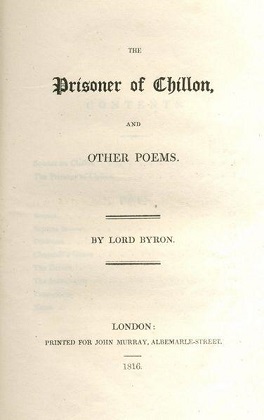|
Mazeppa (poem)
''Mazeppa'' is a narrative poem written by the English Romantic poet Lord Byron in 1819. It is based on a popular legend about the early life of Ivan Mazepa (1639–1709), who later became Hetman (military leader) of Ukraine.''Mazeppa'' is a historical spelling; in modern documents the historical figure is referred to as ''Ivan Mazepa''. However, reprints of Byron's poem keep the spelling ''Mazeppa''. This article uses the "Mazeppa" spelling when referring to the hero of the poem, and reserves "Mazepa" for references to the actual historical personage. Byron's poem was immediately translated into French, where it inspired a series of works in various art forms. The cultural legacy of ''Mazeppa'' was revitalised with the independence of Ukraine in 1991. According to the poem, the young Mazeppa has a love affair with a Polish Countess, Theresa, while serving as a page at the Court of King John II Casimir Vasa. Countess Theresa was married to a much older Count. On discovering ... [...More Info...] [...Related Items...] OR: [Wikipedia] [Google] [Baidu] |
Lord Byron
George Gordon Byron, 6th Baron Byron (22 January 1788 – 19 April 1824) was an English poet. He is one of the major figures of the Romantic movement, and is regarded as being among the greatest poets of the United Kingdom. Among his best-known works are the lengthy narratives ''Don Juan (poem), Don Juan'' and ''Childe Harold's Pilgrimage''; many of his shorter lyrics in ''Hebrew Melodies'' also became popular. Byron was educated at Trinity College, Cambridge, before he travelled extensively in Europe. He lived for seven years in Italy, in Venice, Ravenna, Pisa and Genoa after he was forced to flee England due to threats of lynching. During his stay in Italy, he would frequently visit his friend and fellow poet Percy Bysshe Shelley. Later in life, Byron joined the Greek War of Independence to fight the Ottoman Empire, for which Greeks revere him as a folk hero. He died leading a campaign in 1824, at the age of 36, from a fever contracted after the First Siege of Missolonghi, f ... [...More Info...] [...Related Items...] OR: [Wikipedia] [Google] [Baidu] |
Battle Of Poltava
The Battle of Poltava took place 8 July 1709, was the decisive and largest battle of the Great Northern War. The Russian army under the command of Tsar Peter I defeated the Swedish army commanded by Carl Gustaf Rehnskiöld. The battle would lead to the Swedish Empire losing its status as a European great power and also marked the beginning of Russian supremacy in eastern Europe. During the course of six years in the initial stages of the war, King Charles XII and the Swedish Empire had defeated almost all participants in the anti-Swedish coalition, which initially consisted of the Polish-Lithuanian Commonwealth, Denmark-Norway and the Tsardom of Russia. The latter, under , was the only one still fighting. Charles therefore chose to invade Russia in the autumn of 1707 and march towards Moscow with a large Swedish army. However, the campaign was complicated by harsh weather conditions and by Russian scorched earth tactics and surprise attacks, which forced Charles to interr ... [...More Info...] [...Related Items...] OR: [Wikipedia] [Google] [Baidu] |
Zbigniew Bialas
Zbigniew () is a Polish masculine given name, originally Zbygniew . This West Slavic name is derived from the Polish elements ''Zby-'' (from ''zbyć, zbyć się, or pozbyć się'', meaning "to dispel", "to get rid of") and ''gniew'', meaning "anger". The Czech form of this name is Zbyněk (derived from Zbyhněv). English diminutives of this name are Zibi, Zbiggy or Zbig. Notable people * Zbigniew of Brzezia (c. 1360 – c. 1425), Polish knight and nobleman of Clan Zadora * Zbigniew of Poland, high duke of Poland from 1102–1106 A * Zbigniew Andruszkiewicz (born 1959), Polish rower B * Zbigniew Babiński (1896–1940), Polish military and sports aviator * Zbigniew Bargielski (born 1937), Polish composer * Zbigniew Baranowski (born 1991), Polish wrestler * Zbigniew Bartman (born 1987), Polish volleyball player * Zbigniew Beta (born 1953), Polish long jumper * Zbigniew Bieńkowski (1913–1994), Polish poet, literary critic, translator and essayist * Zbigniew Boniek ( ... [...More Info...] [...Related Items...] OR: [Wikipedia] [Google] [Baidu] |
Critical Theory
Critical theory is a social, historical, and political school of thought and philosophical perspective which centers on analyzing and challenging systemic power relations in society, arguing that knowledge, truth, and social structures are fundamentally shaped by power dynamics between dominant and oppressed groups. Beyond just understanding and critiquing these dynamics, it explicitly aims to transform society through praxis and collective action with an explicit sociopolitical purpose.Ludovisi, S.G. ed., 2015. Critical theory and the challenge of praxis: Beyond reification. Ashgate Publishing, Ltd. Critical theory's main tenets center on analyzing systemic power relations in society, focusing on the dynamics between groups with different levels of social, economic, and institutional power. Unlike traditional social theories that aim primarily to describe and understand society, critical theory explicitly seeks to critique and transform it. Thus, it positions itself as bot ... [...More Info...] [...Related Items...] OR: [Wikipedia] [Google] [Baidu] |
The Stranger (Camus Novel)
''The Stranger'' ( , ), also published in English as ''The Outsider'', is a 1942 novella written by French author Albert Camus. The first of Camus's novels to be published, the story follows Meursault, an indifferent settler in French Algeria, who, weeks after his mother's funeral, kills an unnamed Arab man in Algiers. The story is divided into two parts, presenting Meursault's first-person narrative before and after the killing.From Cyril Connolly's introduction to the first English translation, by Stuart Gilbert (1946) Camus completed the initial manuscript by May 1941, with revisions suggested by André Malraux, Jean Paulhan, and Raymond Queneau that were adopted in the final version. The original French-language first edition of the novella was published on 19 May 1942, by Gallimard, under its original title; it appeared in bookstores from that June but was restricted to an initial 4,400 copies, so few that it could not be a bestseller. Even though it was published du ... [...More Info...] [...Related Items...] OR: [Wikipedia] [Google] [Baidu] |
Albert Camus
Albert Camus ( ; ; 7 November 1913 – 4 January 1960) was a French philosopher, author, dramatist, journalist, world federalist, and political activist. He was the recipient of the 1957 Nobel Prize in Literature at the age of 44, the second-youngest recipient in history. His works include ''The Stranger (Camus novel), The Stranger'', ''The Plague (novel), The Plague'', ''The Myth of Sisyphus'', ''The Fall (Camus novel), The Fall'' and ''The Rebel (book), The Rebel''. Camus was born in French Algeria to ''pied-noir'' parents. He spent his childhood in a poor neighbourhood and later studied philosophy at the University of Algiers. He was in Paris when the Battle of France, Germans invaded France during World War II in 1940. Camus tried to flee but finally joined the French Resistance where he served as editor-in-chief at ''Combat (newspaper), Combat'', an outlawed newspaper. After the war, he was a celebrity figure and gave many lectures around the world. He married twice ... [...More Info...] [...Related Items...] OR: [Wikipedia] [Google] [Baidu] |
Existentialism
Existentialism is a family of philosophical views and inquiry that explore the human individual's struggle to lead an authentic life despite the apparent absurdity or incomprehensibility of existence. In examining meaning, purpose, and value, existentialist thought often includes concepts such as existential crises, angst, courage, and freedom. Existentialism is associated with several 19th- and 20th-century European philosophers who shared an emphasis on the human subject, despite often profound differences in thought. Among the 19th-century figures now associated with existentialism are philosophers Søren Kierkegaard and Friedrich Nietzsche, as well as novelist Fyodor Dostoevsky, all of whom critiqued rationalism and concerned themselves with the problem of meaning. The word ''existentialism'', however, was not coined until the mid 20th century, during which it became most associated with contemporaneous philosophers Jean-Paul Sartre, Martin Heidegger, Simone de Beau ... [...More Info...] [...Related Items...] OR: [Wikipedia] [Google] [Baidu] |
Don Juan (poem)
''Don Juan'' is an English unfinished satirical epic poem written by Lord Byron between 1819 and 1824 that portrays the Spanish folk legend of Don Juan, not as a Womanise, womaniser as historically portrayed, but as a victim easily Seduction, seduced by women.English 151-03 ''Byron's 'Don Juan' notes'' , Gregg A. Hecimovich ''Don Juan'' is a poem written in ''ottava rima'' and presented in 16 cantos in which Lord Byron derived the character of Don Juan from traditional Spanish folk legends; however, the story was very much his own. Upon publication in 1819, cantos I and II were widely criticised as immoral because Byron had so freely ridiculed the social subjects and public figures of his time.Coleridge, "Introduction", p. 000. [...More Info...] [...Related Items...] OR: [Wikipedia] [Google] [Baidu] |
The Prisoner Of Chillon
''The Prisoner of Chillon'' is a 392-line narrative poem by Lord Byron. Written in 1816, it chronicles the imprisonment of a Genevois monk, François Bonivard, from 1532 to 1536. Writing and publication On 22 June 1816, Lord Byron and his contemporary and friend Percy Bysshe Shelley were sailing on Lake Geneva Lake Geneva is a deep lake on the north side of the Alps, shared between Switzerland and France. It is one of the List of largest lakes of Europe, largest lakes in Western Europe and the largest on the course of the Rhône. Sixty percent () ... (referred to as "Lac Leman", the French name, throughout the poem) and stopped to visit the Château de Chillon. After touring the castle (and walking through the dungeon in which Bonivard was imprisoned), Byron was inspired by Bonivard's story and composed '' The Sonnet of Chillon''. Because of torrential rainfall, Byron and his companion rested at a hotel in Ouchy following their tour. In late June or early July ... [...More Info...] [...Related Items...] OR: [Wikipedia] [Google] [Baidu] |
Louis Boulanger Louis--death Of The Horse Of Mazeppa--1839
Louis may refer to: People * Louis (given name), origin and several individuals with this name * Louis (surname) * Louis (singer), Serbian singer Other uses * Louis (coin), a French coin * HMS ''Louis'', two ships of the Royal Navy See also * Derived terms * King Louis (other) * Saint Louis (other) * Louis Cruise Lines * Louis dressing, for salad * Louis Quinze, design style Associated terms * Lewis (other) * Louie (other) * Luis (other) * Louise (other) * Louisville (other) Associated names * * Chlodwig, the origin of the name Ludwig, which is translated to English as "Louis" * Ladislav and László - names sometimes erroneously associated with "Louis" * Ludovic, Ludwig, Ludwick, Ludwik Ludwik () is a Polish given name. Notable people with the name include: * Ludwik Czyżewski, Polish WWII general * Ludwik Fleck (1896–1961), Polish medical doctor and biologist * Ludwik Gintel (1899–1973), Polish-Israeli ... [...More Info...] [...Related Items...] OR: [Wikipedia] [Google] [Baidu] |
Great Northern War
In the Great Northern War (1700–1721) a coalition led by the Tsardom of Russia successfully contested the supremacy of the Swedish Empire in Northern Europe, Northern, Central Europe, Central and Eastern Europe. The initial leaders of the anti-Swedish alliance were Peter the Great, Peter I of Russia, Frederick IV of Denmark, Frederick IV of Denmark–Norway and Augustus II the Strong of Electorate of Saxony, Saxony–Polish–Lithuanian Commonwealth, Poland–Lithuania. Frederick IV and Augustus II were defeated by Sweden, under Charles XII, and forced out of the alliance in 1700 and 1706 respectively, but rejoined it in 1709 after the defeat of Charles XII at the Battle of Poltava. George I of Great Britain and the Electorate of Hanover joined the coalition in 1714 for Hanover and in 1717 for Britain, and Frederick William I of Prussia, Frederick William I of Brandenburg-Prussia joined it in 1715. Charles XII led the Swedish army. Swedish allies included Holstein-Gottorp, sev ... [...More Info...] [...Related Items...] OR: [Wikipedia] [Google] [Baidu] |
André Guillaume Contant Dorville
André — sometimes transliterated as Andre — is the French and Portuguese form of the name Andrew and is now also used in the English-speaking world. It used in France, Quebec, Canada and other French-speaking countries, as well in Portugal, Brazil and other Portuguese-speaking countries. It is a variation of the Greek name ''Andreas'', a short form of any of various compound names derived from ''andr-'' 'man, warrior'. The name is popular in Norway and Sweden. Cognate names Cognate names are: * Bulgarian: Andrei, |






